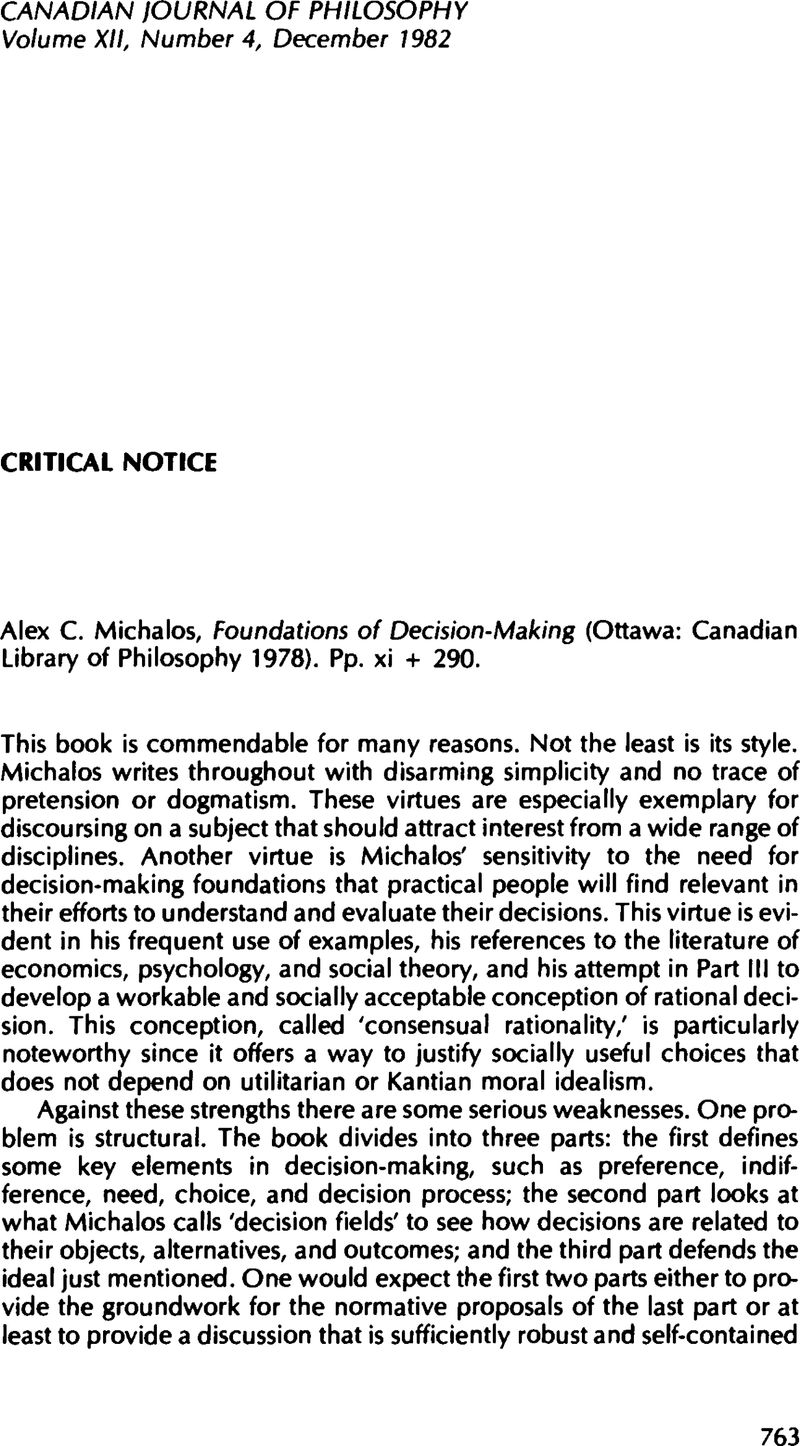No CrossRef data available.
Published online by Cambridge University Press: 01 January 2020

1 Sobel, J. Howard ‘The Need for Coercion,’ in Pennock, J.R. and Chapman, J.W. eds., Coercion (New York: Aldine-Atherton 1974), 148-77;Google Scholar Gauthier, David P. 'Reason and Maximization,’ Canadian Journal of Philosophy, 4 (1974-75) 411-33CrossRefGoogle Scholar
2 Technically, whether this strtegy counts as rational for consensual rationality depends on how one should calculate ‘estimated’ benefits and costs in cases of complete uncertainty. The dominant strategy is at least the only one with the possibility of resulting in a benefit/cost ratio that is not less than unity.
3 Brandt, Richard B. ‘Rational Desires,’ Proceedings and Addresses of the American Philosophical Association, 42 (1969) 43–64Google Scholar
4 This view is defended in Brandt, Richard A Theory of the Good and the Right (Oxford: Clarendon Press 1979)Google Scholar Chapters I-VIII, and in Campbell, Richmond Self Love and Self-Respect: A Philosophical Study of Egoism (Ottawa: Canadian Library of Philosophy 1979)Google Scholar Chapters V and VI.
5 Two notable recent additions are: Skyrms, Brian Causal Necessity, A Pragmatic Investigation of the Necessity of Laws (New Haven: Yale University Press 1980)Google Scholar Chapter IIC, and Lewis, David ‘Causal Decision Theory,’ Australasian Journal of Philosophy, 59 (1981), 5–30.Google Scholar
6 Lewis, David ‘Prisoners’ Dilemma Is a Newcomb Problem,’ Philosophy and Public Affairs, 8 (1978-79) 235-40Google Scholar